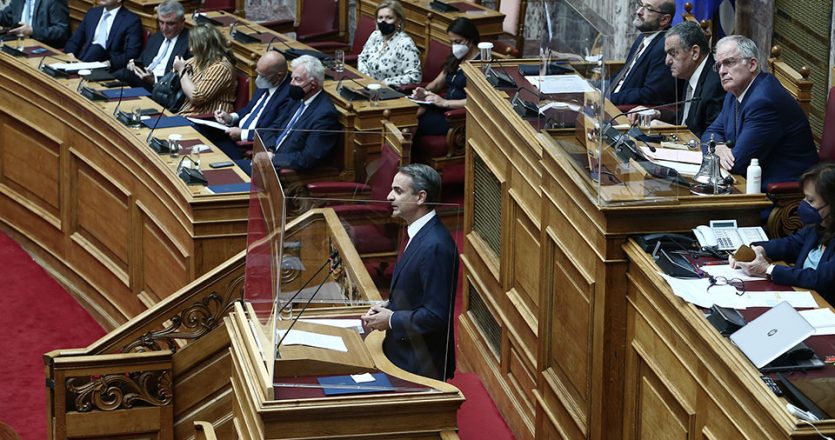Government to abolish solidarity levy as of 2023, allow pension hikes

Prime Minister Kyriakos Mitsotakis reiterated his plan to terminate a so-called solidarity tax surcharge on incomes as of 2023 and allow for pension increases, frozen for the past 12 years as part of stringent fiscal rules imposed by the country’s creditors during its debt crisis.
“It is a double resounding signal that the country’s growth must benefit everyone without putting fiscal balance and the Greek economy’s competitiveness at risk,” Mitsotakis told lawmakers during a debate in Parliament called by the prime minister to present his government’s work on social issues.
He said that pensions “will be placed on a course of regular and permanent increases” as of next year and that the abolition of the solidarity tax will apply to everyone – private and public sector employees, as well as pensioners.
Mitsotakis had initially pledged the abolition of the levy for one year (2021) in September 2020, as part of a tax relief package to boost jobs amidst a recession caused by the coronavirus pandemic, but the plan was postponed as the economy took a downturn.
He went on to say that the government’s top priority was a speedy recovery of the national economy, with lots of investments leading to better wages and many new jobs.
“Today’s Greece is a different Greece. It is one of the countries with the most dynamic growth and the highest reduction of unemployment in Europe. It is of the top countries in the OECD in terms of tax reduction and has paid off its debt to the IMF two years earlier, while in August it will break free of enhanced surveillance while aiming to regain its investment grade. This is a national success, even more so because all the things I spoke of were neither self-evident nor easy, nor were they achieved under normal conditions,” he said.
He noted that labor issues were crucial for the double raise in the minimum wage in Greece, which stood at 650 euros a month when the government came into power in 2020 and had now risen to 713 euros, while the benefit was even greater as a result of a reduction in social security contributions, reaching 1,000 euros for each worker on an annual basis.
This placed Greece in the ninth place in the European Union, above Portugal, and would also lead to increases in benefits and three-year pay rises, the prime minister said.





